- Home
- Podcasts
Upcoming
-
Dr. Heidi Beverine-CurryChief Academic Officer, The Reading LeagueLearn more about Dr. Heidi Beverine-Curry
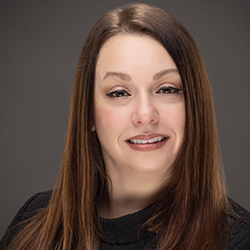 Dr. Heidi Beverine-Curry
Dr. Heidi Beverine-CurryDr. Heidi Beverine-Curry is a co-founder and chief academic officer for The Reading League, where she oversees the professional development department and designs, supervises, and delivers educator learning opportunities for more than 60 partnering school districts. Dr. Beverine-Curry is frequently invited to speak about the science of reading and has presented widely at conferences and events across the U.S. and internationally. Before beginning work for The Reading League full time in 2019, she spent 21 years working in public schools, where she made use of her certifications in elementary education, K–12 special education, and K–12 reading education. When Dr. Beverine-Curry began her doctoral coursework in reading education in 2006, she became a champion for evidence-aligned literacy instruction and has led a number of successful reform efforts. She was an adjunct professor at Syracuse University and SUNY Oswego, where she specialized in teaching clinical reading intervention coursework.
Evidence-Aligned Reading Instruction: Transforming Your School or District
Release Date: Thursday, May 23, 2024School change is hard…but it can be done! Join us as we talk about what it takes to transform a school’s culture of practice to be more aligned with the scientific evidence base on reading, and why it’s worth the effort. Dr. Heidi Beverine-Curry of The Reading League will share how a single school or entire district can transition successfully to teaching reading based on science, and how that transition can dramatically improve overall literacy and student outcomes.
Join us as we discuss:
- What it takes to transform a school toward alignment with the scientific evidence base on reading
- Common obstacles and tips for overcoming them
- Examples of what is possible from The Reading League’s real-life work with schools
We hope you’ll join the conversation as we talk with the inspirational Dr. Beverine-Curry!
New Podcasts
-
Dr. Barbara FoormanEmerita professor of education, emerita director, Florida Center for Reading Research, Florida State UniversityLearn more about Dr. Barbara Foorman
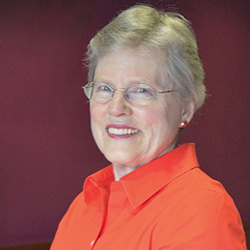 Dr. Barbara Foorman
Dr. Barbara FoormanDr. Barbara Foorman is an internationally known expert in reading, with more than 160 publications stemming from many multisite federal research grants and contracts. Dr. Foorman’s research focuses on reading and language development, instruction, and assessment. She is emeritus professor of education, director emeritus of the Florida Center for Reading Research, and past director of the Regional Educational Laboratory Southeast at Florida State University. Dr. Foorman was the first commissioner of the National Center for Education Research at the Institute of Education Sciences (IES). She serves on several editorial boards and has served on national consensus panels in reading and chaired the IES Practice Guide panel on Foundational Reading Skills in Support of Reading for Understanding in Kindergarten Through 3rd Grade. She also developed literacy assessments for Texas and Florida and developed curricula in spelling, phonemic awareness, and vocabulary.
NewWhat’s Missing from K–2 Reading Instruction?
Release Date: Thursday, April 25, 2024We know from decades of rigorous research how students learn to read and how they should be taught. Nevertheless, many elements of evidence-based reading instruction are missing from K–2 classrooms. Join this fascinating and applicable discussion with one of education’s most respected researchers, Dr. Barbara Foorman, as she shares the research-based facts about what is often missing and how to rectify that in the school or classroom.
Featured DownloadDr. Foorman will share a range of helpful curriculum specifics, word-identification strategies, differentiation, and more.
Listeners will leave this discussion with new understanding of:
- What's missing in K–2 reading instruction?
- How to fill the gaps in K–2 reading instruction with evidence-based practices
- Ways to differentiate instruction so all students learn to read
- The importance of (a) privileging word-identification strategies over picture and syntactic cues to ensure accurate word identification, and (b) handwriting fluency
- Strategies to apply in the classroom by using assessment data to form flexible reading groups and to encourage writing in support of reading
Previous Podcasts
-
Dr. Pamela SnowResearcher, author, and professor of cognitive psychology in the School of Education at La Trobe University in AustraliaLearn more about Dr. Pamela Snow
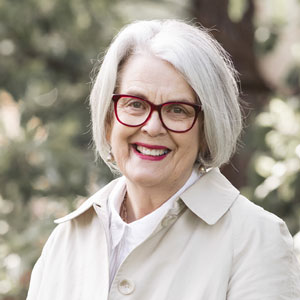 Dr. Pamela Snow
Dr. Pamela SnowDr. Pamela Snow is a professor of cognitive psychology in the School of Education at La Trobe University in Australia. As a registered psychologist who qualified originally in speech-language pathology, both disciplines strongly inform her research, as do her seven years working in public health research and teaching, and seven years as coordinator of a post-graduate program for primary and secondary teachers, concerning high-prevalence mental health problems.
Dr. Snow’s research passion is communication competence—primarily as it pertains to vulnerability in early life. She is also interested in promoting evidence-based practice and supporting practitioners in all disciplines to spot and avoid pseudoscience in their work.
Much of her current research focus is on the early language-to-literacy transition and ways this is best supported in early years classrooms.
Oral Language and Reading Skills
Release Date: Thursday, March 14, 2024In this conversation, Dr. Pamela Snow will discuss oral language in early childhood and across the school years, with a focus on its importance and role in developing, and being developed by, reading skills. She will also discuss the importance of applying public health principles to early reading instruction, to maximize success for all through evidence-based reading instruction and support.
Language and literacy are a two-way street that is not always well understood. Oral language abilities promote reading abilities and vice versa, and as research has shown, early reading success loops back to oral language skills. How can educators use this knowledge to help ALL students learn to read?
Featured DownloadJoin this fascinating conversation with Dr. Snow, a respected researcher, author, and professor of cognitive psychology in the School of Education at La Trobe University in Australia. She will share her experience and insight into research findings about why early oral language skills are the essential engine children need to bring to school (and indeed, have strengthened through their school experiences). Dr. Snow will discuss why children need to be exposed to more complex vocabulary and syntactic structures than typical conversation affords, and how teachers of these early learners can help their students master the skills they need to become lifelong readers and communicators.
In this podcast, you’ll learn:
- How decoding and language comprehension need to work together in reading acquisition and ongoing development
- Ways to incorporate explicit teaching of morphology and etymology in early stages of systematic phonics instruction
- Why children who do master reading early have a lasting edge on those who do not
- What teachers of early learners can do every day to help students build both oral and reading skills
- Importance of the scientific method in informing policy and practice in schools and the importance of avoiding pseudoscientific approaches, no matter how appealing they may seem
-
Susan EbbersLiteracy Expert and Author of Power Readers, Supercharged Readers, and Vocabulary Through MorphemesLearn more about Susan Ebbers
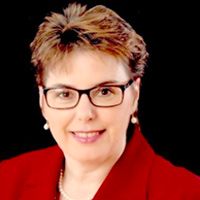 Susan Ebbers
Susan EbbersSusan Ebbers is a literacy expert and author of Power Readers, Supercharged Readers, and Vocabulary Through Morphemes, as well as the rhyming picture books, Jamie’s Journey: The Savannah and Jamie’s Journey: The Mountain. She has consulted across the country and continues to work to promote reading, focusing especially on vocabulary and morphological awareness. She served as a primary grade teacher for more than 10 years before moving on to work with adolescents striving to read. In doctoral studies, she focused on vocabulary development and morphological awareness. To learn more, visit, Vocabulogic at https://vocablog-plc.blogspot.com.
Boosting Beginning Reading: Strategic Reading Reinforcement
Release Date: Thursday, February 22, 2024Join us for this interesting conversation with our guest Literacy Expert Susan Ebbers who will share the research and strategies surrounding learning to read.
Featured DownloadEbbers will illustrate how research supports the entwining of phonology, orthography, morphology, and vocabulary when teaching children to read, and to read more capably and with greater comprehension; and how this type of multidimensional approach is even more effective when integrated within the context of phrases, sentences, passages, and stories. Ebbers will also discuss the role self-efficacy plays in nurturing a motivation to read despite difficulties.
She will share ways to help students build skills systematically while also building confidence as well as strategies to:
- Reinforce basic decoding and “sight word” recognition
- Reinforce phonics, including polysyllabic decoding, in context
- Develop vocabulary and basic morphological awareness
- Engage interest and boost self-efficacy within the context of reading
We hope you will join us for this important conversation.
-
Dr. Louisa MoatsAuthor of LANGUAGE! Live®Learn more about Dr. Louisa Moats
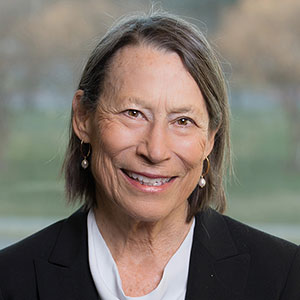 Dr. Louisa Moats
Dr. Louisa MoatsDr. Louisa Moats has been a teacher, psychologist, researcher, graduate school faculty member, and author of many influential scientific journal articles, books, and policy papers on the topics of reading, spelling, language, and teacher preparation. Dr. Moats is the author of LANGUAGE! Live®, a blended reading intervention program for grades 5–12, and the lead author of LETRS® professional development and the textbook, Speech to Print: Language Essentials for Teachers. Dr. Moats is also co-author of Spellography, a structured language word study program. Dr. Moats’ awards include the prestigious Samuel T. and June L. Orton award from the International Dyslexia Association® for outstanding contributions to the field; the Eminent Researcher Award from Learning Disabilities Australia; and the Benita Blachman award from The Reading League.
Dr. Claude GoldenbergNomellini & Olivier Professor of Education, Emeritus, Graduate School of Education at Stanford UniversityLearn more about Dr. Claude Goldenberg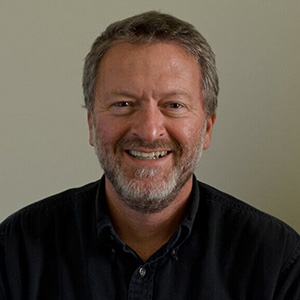 Dr. Claude Goldenberg
Dr. Claude GoldenbergDr. Claude Goldenberg is the Nomellini & Olivier Professor of Education, Emeritus, at Stanford University. He received his A.B. in history from Princeton University and M.A. and Ph.D. from UCLA’s Graduate School of Education. He taught junior high school in San Antonio, Texas, and first grade in a bilingual elementary school in Los Angeles. A native of Argentina, his areas of research centered on promoting academic achievement among language minority students, particularly those from Spanish-speaking backgrounds.
Goldenberg was on the National Research Council's Committee for the Prevention of Early Reading Difficulties in Young Children (1997) and the National Literacy Panel on Language-Minority Children and Youth (2006), which synthesized research about promoting literacy development among multilingual learners. He is also co-author of Promoting Academic Achievement among English Learners: A Guide to the Research (2010, Corwin), and co-editor of Language and Literacy Development in Bilingual Settings (2011, Guilford).
He currently works promoting research, policy, and practices to enhance literacy and academic development among students not yet proficient in English.
Reading Science and Teaching Literacy to English Learners: Conceptual and Practical Implications
Release Date: Thursday, January 18, 2024Join us for this lively and informative discussion between two literacy powerhouses. Dr. Claude Goldenberg, a bilingual literacy expert and author, and Dr. Louisa Moats, author of Speech to Print, Spellography, and creator of LANGUAGE! Live® and LETRS®, as they explore the universals for teaching children to read in any language. What does reading science tell us about how students learn to read in a language other than their own? Is there a science of reading instruction that is applicable across language contexts?
Our experts will discuss the relationship between oral and written language learning and the implications of this relationship for teaching students with varied language backgrounds. They will also explore the common debates still being resolved within the EL teaching community and how to ensure the best literacy learning for every child—regardless of their native language.
Our guests will discuss:
- Universal principles and guidelines for teaching children to read and write in any language
- Some fundamental ideas and practices about teaching ELs that any teacher should know
- The role of oral language comprehension and use when learning to read and write in a second language
- Chronic gaps between white, black, and Hispanic students in the U.S., and evidence to support doing more to help students who are not achieving.
We hope you’ll join us for this timely conversation.
-
Dr. Rebecca TolsonWalsh UniversityLearn more about Dr. Rebecca Tolson
 Dr. Rebecca Tolson
Dr. Rebecca TolsonRebecca Tolson has a Ph.D. in curriculum & instruction from the University of Akron and is a member of Academic Therapy Association at the level of qualified instructor and certified academic language therapist and a certified dyslexia therapist through the International Dyslexia Association®.
Tolson began her career in education as a fifth-grade teacher and later transitioned to teaching both children and adults with learning disabilities. She specializes in using Structured Literacy techniques as intervention for dyslexia and dysgraphia.
Tolson is a literacy/dyslexia consultant and teaches as an adjunct professor for Walsh University in the masters of dyslexia therapy program and serves as the chair of the Ohio Dyslexia Committee.
Dyslexia: Understanding the Science and Evidence-Aligned Instructional Approaches
Release Date: Thursday, November 9, 2023Join this robust discussion about the key features of the Structured Literacy approach proven to work for students with dyslexia. Listeners will learn useful strategies and classroom tips with an emphasis on mastery learning and student outcomes.
Our expert will discuss:
- What is taught in the Structured Literacy approach
- How the Structured Literacy approach is taught
- Why Structured Literacy is proven for students with literacy challenges
- The difference between Structured Literacy and typical literacy practices
- Strategies and activities for the classroom
-
Kareem WeaverCo-founder and executive director of FULCRUM, which partners with stakeholders to improve reading results for students.Learn more about Kareem Weaver
 Kareem Weaver
Kareem WeaverKareem Weaver is the co-founder and executive director of FULCRUM, which partners with stakeholders to improve reading results for students. He is the Oakland NAACP's 2nd vice president and chair of its Education Committee. His advocacy is featured in the upcoming film The Right to Read. Weaver previously served as New Leaders’ executive director of the Western Region and was an award-winning teacher and administrator. He has an undergraduate degree from Morehouse College and a master’s degree in Clinical-Community Psychology from the University of South Carolina. Weaver believes in the potential of all students, the brotherhood of man, and the importance of service above self. His educational heroine, for literacy instruction, is the late Marva Collins.
Dyslexia and the Science of Reading: Educational Changes Worth Fighting For
Release Date: Wednesday, October 11, 2023For people who have seen the documentary The Right to Read, you’ve heard of Kareem Weaver because his work is featured in the film produced by LaVar Burton. Weaver is an Oakland-based activist with the NAACP, and as an experienced educator his mission is to create a world where all children can read.
Join us for this inspiring conversation as we talk with Weaver about dyslexia, the science of reading, and what American schools need to do to help all students read at grade level. Our discussion will cover why literacy gaps are especially pronounced among certain students, the need for early diagnosis of dyslexia, and what educational changes Weaver continually fights for in his quest to help all students learn to read. Weaver brings unique insight to this discussion from a parent’s perspective because his daughter was diagnosed with dyslexia as an older student, and as an educator who knows literacy is a right every person is entitled to.
-
John HattieAuthor, researcher, and laureate professor at the Melbourne Graduate School of Education at the University of Melbourne.Learn more about John Hattie
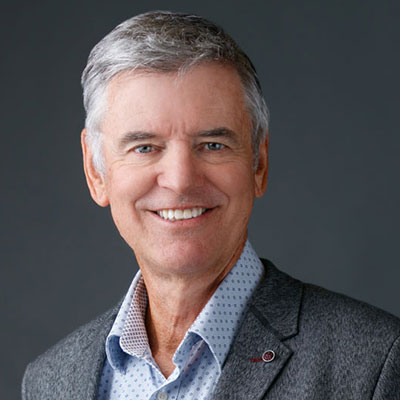 John Hattie
John HattieProfessor John Hattie is a researcher in education. His research interests include performance indicators, models of measurement, and evaluation of teaching and learning. He became known to a wider public with his two books Visible Learning (now in a new edition) and Visible Learning for Teachers. Visible Learning: the Sequel is a synthesis of more than 2,100 meta-studies covering more than 400 million students. Visible Learning is the result of decades of research about what works best for learning in schools, Hattie says. TES once called him “possibly the world’s most influential education academic.”
Hattie has been director of the Melbourne Educational Research Institute at the University of Melbourne, Australia, since March 2011. Before, he was chair of the Board of the Australian Institute of Teaching and Learning. He holds a Ph.D. from the University of Toronto, Canada.
A Conversation with John Hattie (Visible Learning): Beyond What Works to What Works Best
Release Date: Tuesday, September 26, 2023When John Hattie’s original Visible Learning® book was published in 2008, it instantly became a sensation. Recently, this revolutionary educator returned to his groundbreaking work and published a new edition. The research underlying Hattie’s book is now informed by more than 2,100 meta-analyses (more than double that of the original), drawn from more than 130,000 studies, and has involved more than 400 million students from around the world.
If you’ve read the book, you know this is more than just a new edition. This book is a sequel that highlights the major story, taking in the big picture to reflect on the implementation in schools of Visible Learning, how it has been understood—and at times misunderstood—and what future directions research should take.
Join us as we talk with Hattie about the need for education to move beyond claiming what works to what works best by asking crucial questions like: Why is the current grammar of schooling so embedded in so many classrooms, and can we improve it? Why is the learning curve for teachers after the first few years so flat? How can we develop teacher mindframes to focus more on learning and listening? How can we incorporate research evidence as part of the discussions within schools?
During the podcast, we will discuss these topics:
- What Hattie means by visible learning
- Three ways of making learning visible: student voice, student artifacts, test scores, and how the teacher interprets that information, and decides where to go next with a student’s learning
- The importance of play in early learning
- The need for intentional alignment of learning and teaching strategies
- The evidence base and reactions to Visible Learning
- The Visible Learning model
- The influence of home, students, teachers, classrooms, schools, learning, and curriculum on achievement
- The impact of technology
If you’re in education either as a researcher, teacher, student, school leader, teacher trainer, or policy maker, this episode is for you!
-
Dr. Antonio FierroLiteracy Expert and English Language EducatorLearn more about Dr. Antonio Fierro
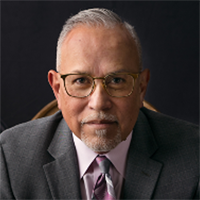 Dr. Antonio Fierro
Dr. Antonio FierroDuring his respected career, Dr. Antonio Fierro has been able to apply his many years in the classroom and as a literacy expert to help schools and districts teach reading to every student, regardless of previous experience or native language. His vast experience contributes invaluable insight into their products and services. Dr. Fierro is a former Texas State Teacher of the Year and was a member of the LETRS cohort of literacy consultants led by Dr. Louisa Moats for almost 20 years.
Dr. Fierro has contributed to several literacy curricula for English learners along with Tools 4 Reading President Dr. Mary Dahlgren. He is the co-author of Kid Lips, their curriculum that teaches the articulatory features of English phonemes to young children with additional support for English learners. His areas of interest include early literacy instruction, improving the learning experience of pre-service teaching candidates, and the research and practice that impacts English learners. Dr. Fierro is also dedicated to advancing the knowledge base and understanding of dyslexia and other reading disabilities as his son, Antonio Jr., has dyslexia. Dr. Fierro currently sits on the board of The Reading League and is the Vice President of Academics and Professional Learning with 95 Percent Group.
Dr. Elsa Cárdenas-HaganBilingual Speech Language Pathologist and a Certified Academic Language TherapistLearn more about Dr. Elsa Cárdenas-Hagan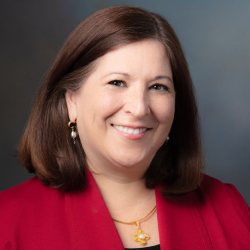 Dr. Elsa Cárdenas-Hagan
Dr. Elsa Cárdenas-HaganElsa Cárdenas-Hagan, Ed.D, is a Bilingual Speech Language Pathologist, Certified Academic Language Therapist and Qualified Instructor. She is the President of Valley Speech Language and Learning Center in Brownsville, Texas which was established in 1993. She is also a research associate with the Texas Institute for Measurement Evaluation and Statistics at the University of Houston.
Dr. Cárdenas-Hagan is the author of Esperanza (HOPE), a Spanish language program designed to assist students who struggle with learning to read. Her research interests include the development of early reading assessments for Spanish-speaking students and the development of reading interventions for bilingual students. She serves as the Chairperson of the National Joint Committee on Learning Disabilities and is a Past Vice-Chairperson for the International Dyslexia Association. Elsa has authored curricular programs, book chapters, and journal articles related to oracy and literacy development for English language learners. Her book, Literacy Foundations for English Learners: A Comprehensive Guide to Evidence-Based Instruction addresses the Science of Reading and provides strategies for successful implementation among this diverse population of students.
English Learners and the Science of Reading
Release Date: Wednesday, August 23, 2023Today’s educators are teaching the most linguistically diverse student population in United States history. To ensure educational equity for English learners, teachers must be skillfully equipped with instructional practices rooted in the science of reading.
The “science of reading” refers to a vast body of multi-disciplinary research that provides a rationale for what must be taught to ensure that almost all students can learn to read. However, do all reading science practices apply equally when teaching English learners?
Our podcast guests have championed using the science of reading with the English learner as a top priority in everything they do.Drs. Cardenas-Hagan and Fierro will discuss the opportunities and the challenges educators encounter when teaching reading to English learners. They’ll explore:
- The importance of structured language teaching, for all kids, but especially English learners
- The need for teachers of English to understand how language works, which allows instructors to better scaffold the instruction for English learners
- The specifics of that scaffolding of instruction, and tips on what educators can and should do to help English learners achieve reading success
- Specifics of teaching reading, including assessment and MTSS, through the lens of the English learner
- Why it’s critical that classroom instruction includes pedagogy and approaches that take into consideration the anthology of bilingualism—a pedagogy that reflects the understanding of how two languages interact.
- The need to preserve heritage languages and cultures, while providing encouraging biliteracy or multiliteracy skills for all students
- Resources and guidance available from The U.S. Department of Education's Office of English Language Acquisition (OELA), which provides national leadership to help ensure that English Learners and immigrant students attain English proficiency and achieve academic success.
-
Dr. Susan SmarttAuthor of Next STEPS in Literacy Instruction: Connecting Assessments to Effective Interventions, and former senior research associate, National Comprehensive Center for Teacher Quality, Vanderbilt UniversityLearn more about Dr. Susan Smartt
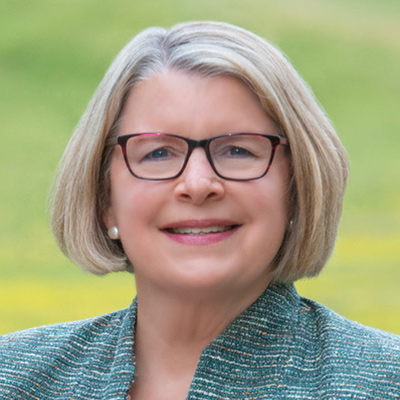 Dr. Susan Smartt
Dr. Susan SmarttSusan Smartt, Ph.D., is a former senior research associate at the National Comprehensive Center for Teacher Quality at Vanderbilt University. She holds a doctorate in school psychology from Tennessee State University and a master’s degree in special education and reading from Peabody College of Vanderbilt University. In her research at Vanderbilt, Dr. Smartt studied improving teacher preparation for reading teachers. She also provided educational consulting services and teacher training to states and local school districts focusing on school reform, reading intervention for low-performing schools, using data to inform practice, developing response to intervention/MTSS initiatives, and implementing scientifically based literacy programs. Dr. Smartt owned and directed a reading clinic for more than 20 years, where she provided comprehensive psychoeducational assessments, dyslexia evaluations, and tutoring services. She has been a classroom teacher, a reading coach, a reading specialist, a principal, a university faculty member, and a researcher. She was an early contributor to the development of LETRS® and past president of the Tennessee Branch of the International Dyslexia Association®. Her publications include authorship and co-authorship of journal articles, edited volumes, and books about research-based reading intervention and policy initiatives, including Fundamentals in Literacy Instruction and Assessment (Paul H. Brookes Publishing Co., 2020), with Martha Hougen, Ph.D. In retirement, Dr. Smartt tutors students with dyslexia, provides advocacy services for students, and volunteers as a mentor for the TN Achieves Initiative.
Determining the Right Literacy Intervention: Using Assessment to Guide your Course
Release Date: Thursday, July 20, 2023What happens after a formative literacy assessment? How can educators translate the results into targeted interventions and improved reading outcomes? This applicable and informative presentation from Dr. Susan Smartt, a respected literacy expert, helps educators make sense of what to do after the assessment and how to best use the valuable data gleaned from those assessments to inform intervention—and move all students toward literacy success.
To help educators address the challenging literacy needs of their diverse learners, our discussion will cover appropriate approaches to intervention and how to determine what approach is best based on assessment results.
Dr. Smartt will explore:
- Dyslexia and other reading challenges, and best practices for the right intervention at the right time
- Explicit instruction and Structured Literacy, and the reasoning behind these instructional approaches
- Designing Tier II and Tier III small-group instruction and monitoring student progress
- The importance of integrating five essential components of reading during instruction
- Ways to effectively target the specific "trouble spots" literacy assessments have identified
- How to take the guesswork out of intervention and transform struggling students into skillful readers
-
Dr. Anita ArcherAuthor of REWARDS®Learn more about Dr. Anita Archer
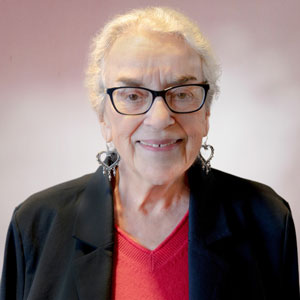 Dr. Anita Archer
Dr. Anita ArcherDr. Anita Archer serves as an educational consultant to state departments and school districts on explicit instruction and literacy. She has presented in all 50 states and many countries including Australia. She is the recipient of 10 awards honoring her contributions to education. Dr. Archer has served on the faculties of three universities including the University of Washington, University of Oregon, and San Diego State University. She has co-authored numerous curriculum materials including Phonics for Reading (Curriculum Associates), a three-level intervention program REWARDS® (Voyager Sopris Learning®), a five-component literacy intervention program; and a best-selling textbook, Explicit Instruction: Effective and Efficient Teaching (Guilford Publications).
Dr. Louisa MoatsAuthor of LANGUAGE! Live®Learn more about Dr. Louisa Moats Dr. Louisa Moats
Dr. Louisa MoatsDr. Louisa Moats has been a teacher, psychologist, researcher, graduate school faculty member, and author of many influential scientific journal articles, books, and policy papers on the topics of reading, spelling, language, and teacher preparation. Dr. Moats is the author of LANGUAGE! Live®, a blended reading intervention program for grades 5–12, and the lead author of LETRS® professional development and the textbook, Speech to Print: Language Essentials for Teachers. Dr. Moats is also co-author of Spellography, a structured language word study program. Dr. Moats’ awards include the prestigious Samuel T. and June L. Orton award from the International Dyslexia Association® for outstanding contributions to the field; the Eminent Researcher Award from Learning Disabilities Australia; and the Benita Blachman award from The Reading League.
Why the ‘Science of Reading’ Needs the ‘The Science of Teaching’—A Conversation Between 2 Literacy Leaders
Release Date: Thursday, June 22, 2023The “science of reading” refers to a vast body of multidisciplinary research providing a rationale for what must be taught to ensure almost all students can learn to read. Our podcast guests have championed this movement and supported organizations such as the International Dyslexia Association®, The Reading League, Decoding Dyslexia, The National Council on Teacher Quality, and The American Federation of Teachers who are advancing awareness of reading science.
But is this movement enough to develop more effective literacy instruction? Join us as our guests discuss why it may not be, unless teaching practices themselves receive more attention.
The “what” or content of reading instruction is often characterized with reference to the “five pillars” or “five components” that were each addressed by The National Reading Panel Report of 2000. Most state standards and policy guidelines name these essential components of instruction: phoneme awareness, phonics, fluency, vocabulary, and reading comprehension. Often added to the list are oral language, spelling, and writing. The content-related issue now being debated concerns the interrelationships of these components, their relative emphasis—for whom and at what point in reading development—and what level of content mastery to expect. We know the impact of curriculum content is diluted without systematic, explicit, cumulative teaching of the lessons.
Our experts will discuss:
- How policy and practice guidelines about the science of reading often mention the importance of “systematic, explicit” instruction. Yet, the “how” of teaching seems to be getting short shrift in comparison to the emphasis on the “what.”
- Why the right reading content must be married to best teaching practices of the “direct instruction” variety
- The importance of structured language teaching, especially for students who are struggling, with an emphasis on language
- Why developing expertise in lesson delivery and evaluation is a long-term but very rewarding undertaking which will transform the “science of reading” into “success for all”
-
Dr. John WoodwardAuthor of TransMath®Learn more about Dr. John Woodward
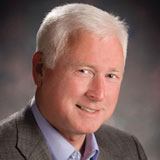 Dr. John Woodward
Dr. John WoodwardDr. John Woodward is a nationally recognized mathematics author, writer, and speaker. He is the past dean of the school of education and professor emeritus at the University of Puget Sound in Tacoma, WA.
As a researcher, he focused on mathematics interventions for academically low-achieving students, particularly in elementary and middle grades. Dr. Woodward has published more than 80 articles and presented on mathematics education issues throughout the U.S., as well as in Canada, Asia, and Europe. He is the senior author of TransMath, a math intervention program for middle school students. He also is the co-developer of NUMBERS, a math professional development program for K–8 teachers.
What Does ChatGPT Have To Do With It? Technology and Today’s Math Classroom
Release Date: Wednesday, May 17, 2023The public release of ChatGPT by OpenAI late last year has captivated, if not terrified, certain sectors of public education. A simple interactive screen allows users to create a range of “authentic looking” documents. ChatGPT essays are either free or fractional in cost.
Some have called ChatGPT the “calculator moment” for writing assignments. Is there a similar, potential effect in math? Should we be welcoming or fearful of this technology?
This podcast will explore programs like ChatGPT and what they mean for mathematics instruction. We’ll discuss other current technologies used in math education today, and reflect on potential, near-term improvements and how upgrades like the “intelligence assistant” now being developed by Microsoft using ChatGPT might be used in math classrooms.
Dr. Woodward will discuss:
- How simple uses of technology today can add value to mathematics instruction and how it helps with assessment, instructional decision-making, and accountability
- How assessment information can be synthesized across a classroom of students to help teachers make critical instructional decisions about grouping
- How to use technology to assist teachers and save time
- Key issues of concern for systems like ChatGPT, including that they do not rank or evaluate the quality of the information captured from the web, and ways to confront those issues
- Ways to use ChatGPT to solve math problems, improve instruction and student engagement, and the program’s limitations and benefits
-
Antonio SacreStoryteller, Author, and Educator, UCLA Lab SchoolLearn more about Antonio Sacre
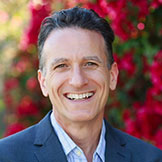 Antonio Sacre
Antonio SacreFor 25 years, in 13 countries, in 45 states, for more than 3 million people…Antonio Sacre has told stories.
His tales of growing up bilingually in a Cuban and Irish-American household have inspired children worldwide to gather their own family stories and become storytellers themselves. His stories have been published in award-winning books and audio recordings. His professional developments and keynote addresses have helped educators teach writing to students from prekindergarten through graduate school. Now, his stories are being developed for film and television.
He teaches at the UCLA Lab School, and lives in Los Angeles with his wife, two children, and two cats. Yes, he's a cat guy.
Improving Literacy Through Storytelling
Release Date: Tuesday, April 25, 2023Join this fascinating conversation that surrounds storytelling—an age-old oral tradition—and how it can be used to improve reading and writing in the classroom.
Our guest, Antonio Sacre, a professional storyteller, children’s book author, and educator, will discuss the simple technique of storytelling and how teachers and specialists can use it to help unlock the writer in every student and get them excited about reading.
Listeners will find this podcast inspiring, captivating, and immediately applicable to classroom instruction. Sacre will discuss the science behind why and how storytelling works to support reading, how to share a good story, and the types of stories that motivate students to want to read and write more.
We hope you’ll join us as our internationally renowned expert leaves you with stories to tell, the capability to share stories more effectively, and keys to teaching them to students across the curriculum.
You’ll learn:
- Tips about making read-a-louds come to life and the research that supports storytelling, with a focus on ELLs
- Five secrets to effective storytelling—and how those secrets help build literacy skills in students
- How personal storytelling builds empathy and student connection
- Ways to augment multicultural literacy
-
Denise EideAuthor of The Logic of English: A Common-Sense Approach to Reading, Spelling, and LiteracyLearn more about Denise Eide
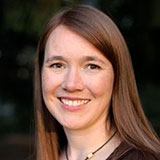 Denise Eide
Denise EideDenise Eide is an educator, speaker, social entrepreneur, and curriculum designer. She has worked in the field of literacy instruction for more than 25 years and has authored 23 books and more than 20 supplements based on the information presented in Uncovering the Logic of English.
Uncovering the Logic of English: Reversing the Educational Crisis
Release Date: Friday, March 24, 2023Reading is the most important skill children need to master to be successful in school and life. However, students increasingly are struggling with this most basic of academic abilities. When children have difficulty reading, they can quickly fall behind their peers. Luckily, there are ways to improve almost any child's reading proficiency with good instruction that’s based on science.
This fascinating discussion with renowned author Denise Eide will explore how the English language works, and the importance of spelling in developing better readers. Eide, who was mentored and inspired by literacy giant Robert Sweet (one of the nation's most-powerful champions of phonic-centered reading reform) will share why students need to be taught the building blocks of words: phonograms and spelling rules, and how understanding the reasons for the spellings of words can transform teaching and learning. Eide will share the “rules” she outlines in her book, ways to teach students to analyze the reasons for English spellings, and much more.
We hope you’ll join us for this fascinating podcast!
-
John Arthur2021 Utah Teacher of the Year and 2021 Finalist for National Teacher of the YearLearn more about John Arthur
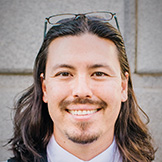 John Arthur
John ArthurJohn Arthur is the 2021 Utah Teacher of the Year and 2021 National Teacher of the Year finalist. He is in his tenth year of teaching at Meadowlark Elementary, a Title I school in Salt Lake City. Arthur is a national board certified teacher, a Utah Teacher Fellow with the Hope Street Group, and an adjunct professor in the Graduate School of Education at Westminster College.
Alisa Cooper de Uribe2021 New Mexico Teacher of the YearLearn more about Alisa Cooper de Uribe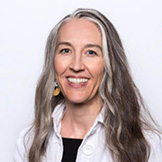 Alisa Cooper de Uribe
Alisa Cooper de UribeAlisa Cooper de Uribe is the 2021 New Mexico Teacher of the Year and the 2022 Teach Plus NM Fellow of the Year. She has taught first grade at New Mexico International School in Albuquerque since 2012. Her classroom follows the 80/20 model of two-way language immersion, and she provides the majority of instruction in the target language of Spanish. She plays a key role in the development of an International Baccalaureate Programme of Inquiry, weaving together inquiry-based learning and language development.
Anthony Swann2021 Virginia Teacher of the YearLearn more about Anthony Swann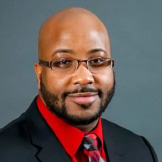 Anthony Swann
Anthony SwannAnthony Swann became the first sitting teacher to be appointed to the State Board of Education in Virginia by Governor Ralph Northam in 2021. He has had the privilege of teaching every elementary grade except kindergarten. His experience also includes two years in North Carolina. Swann has been in education for 16 years as a classroom teacher, instructional coach, and recently was named as the assistant principal of Monterey Elementary in Roanoke, VA. He was chosen to be the 2021 Region 6 Virginia Teacher of the Year as well as the 2021 Virginia State Teacher of the Year. In 2018, he began the program, “Guys with Ties,” to teach boys the importance of honesty, integrity, and character inside and outside the classroom. Swann earned a bachelor’s degree in elementary education from Averett University and a Master of Education in educational leadership from Regent University.
Student Engagement, Empowerment, and Literacy Learning: Strategies of Three Award-Winning Teachers
Release Date: Thursday, February 23, 2023It’s critically important to provide all students (MLLs, students with IEPs, high achievers, those with dyslexia and other reading difficulties, etc.) with targeted, effective reading instruction and interventions—this is a well-known fact. However, these students can be tougher to engage, and special teachers, with unique approaches designed to motivate and help every student feel heard, have strategies that bring literacy learning to the forefront while engaging students in ways not always imagined.
This lively discussion with three award-winning teachers will open your eyes and inspire every educator to strive for what is possible for every student. Each of our panelists were named Teacher of the Year in their respective states. Our host, John Arthur of Utah, was also honored at the White House as a finalist for National Teacher of the Year.
Join us as these three energetic educators share specific strategies and practices they use to help all children overcome challenges, feel seen and heard, and gain new literacy skills that will serve them for a lifetime. Our guests will share tips and ideas useful in any classroom and with any student, with special emphasis on those who struggle as readers and often don’t know how to advocate for themselves. This episode will connect the dots for listeners between engaging literacy instruction/intervention and empowered student voices.
-
Joan SeditaFounder of Keys to LiteracyLearn more about Joan Sedita
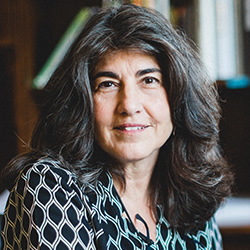 Joan Sedita
Joan SeditaJoan Sedita is the founder of Keys to Literacy, a literacy professional development organization working across the United States. She has been in the literacy field for more than 40 years as a teacher, administrator, and teacher trainer. She is the creator of The Writing Rope framework, and has authored multiple literacy professional development programs, including The Key Comprehension Routine, The Key Vocabulary Routine, Keys to Beginning Reading, Keys to Content Writing, Keys to Early Writing, and Understanding Dyslexia. Beginning in 1975, she worked for 23 years at the Landmark School, a pioneer in the development of literacy intervention programs. Sedita was one of the three lead trainers in Massachusetts for the Reading First Program and was a LETRS® author and trainer. She received her M.Ed. in reading from Harvard University and her B.A. from Boston College.
The Writing Rope: A Framework for Evidence-Based Writing Instruction
Release Date: Thursday, January 26, 2023Writing is a task as complex and multifaceted as reading—but it’s often taught as a single skill. Our podcast guest is Joan Sedita, the successful author of the popular book, The Writing Rope. Her book and the innovative framework she created weaves multiple skills and strategies into five fundamentals of a comprehensive writing curriculum: critical thinking, syntax (sentences), text structure, writing craft, and transcription (spelling and handwriting).
We hope you’ll join this informative discussion as Sedita shares the guidelines that demystify the process of helping students learn to write and write to learn. Our conversation will explore ways educators can plan and deliver comprehensive, explicit, and evidence-based writing instruction, aligned with IDA’s Structured Literacy approach, and based on the latest research. The focus of the book is on grades 4–8, but much of what Sedita will address can be used in earlier grades and high school.
She will share:
- The essential skills all students must learn to become proficient writers
- How to help students use writing to enhance their learning across different content areas
- Ways educators can plan effective writing assignments in different content areas
-
Matthew K. BurnsUniversity of Missouri, Herbert W. Schooling faculty member, professor of special education, and director of the Center for Collaborative Solutions for Kids, Practice, and Policy (SKiPP)Learn more about Matthew K. Burns
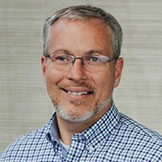 Matthew K. BurnsDr. Matthew K. Burns is the Herbert W. Schooling Faculty Member of Education and a Professor of Special Education at the University of Missouri. He is a prolific researcher (e.g., published over 200 articles and book chapters and 15 books), but is dedicated to positively influencing practice in K-12 schools and mentoring the next generation of thought leaders in education. As one of the leading researchers regarding the use of assessment data to determine individual or small-group interventions, Dr. Burns works closely with schools to study and implement response-to-intervention models, intensive reading and math interventions, school-based teams, and generally supporting students with and without disabilities whose needs are not being met. He is a Past Editor of School Psychology Review and Assessment for Effective Intervention. Dr. Burns was also a practicing school psychologist and special education administrator before becoming an academic and served on the faculty of the University of Minnesota for 10 years and Central Michigan University for 5 years.
Matthew K. BurnsDr. Matthew K. Burns is the Herbert W. Schooling Faculty Member of Education and a Professor of Special Education at the University of Missouri. He is a prolific researcher (e.g., published over 200 articles and book chapters and 15 books), but is dedicated to positively influencing practice in K-12 schools and mentoring the next generation of thought leaders in education. As one of the leading researchers regarding the use of assessment data to determine individual or small-group interventions, Dr. Burns works closely with schools to study and implement response-to-intervention models, intensive reading and math interventions, school-based teams, and generally supporting students with and without disabilities whose needs are not being met. He is a Past Editor of School Psychology Review and Assessment for Effective Intervention. Dr. Burns was also a practicing school psychologist and special education administrator before becoming an academic and served on the faculty of the University of Minnesota for 10 years and Central Michigan University for 5 years.Using the Data You Already Have to Help Students with Dyslexia
Release Date: Wednesday, November 16, 2022When you examine your teaching approaches and how to best help students with dyslexia, it can be easy to assume special data will be needed to help these students improve their foundational reading skills and move toward grade-level literacy.
However, the data you already have from regular assessment practices, like that collected from Acadience® Learning measures, can provide invaluable insight to help you tailor instruction and ensure all students—especially those with dyslexia and other reading challenges—receive the appropriate and timely intervention they need to succeed.
Our guest for this EDVIEW360 podcast is Matthew K. Burns, a literacy, assessment, and special education expert who has dedicated his career to improving the lives of the most-vulnerable children, including those with disabilities, from high-poverty backgrounds, and for whom English is not their native language. Dr. Burns will share how schools can help shape K–12 practice and improve literacy using existing data.
He will also discuss how educators can:
- Use data to target reading interventions for students with dyslexia
- Identify breakdowns in the learning process to better increase reading skills
- Match reading interventions to student need
- Improve students’ reading skills through schoolwide Multi-Tiered Systems of Support, such as Response to Intervention, and school-based teams, like problem-solving teams and professional learning communities.
We hope you’ll join us for this fascinating podcast! -
Dr. Louisa MoatsAuthor of LANGUAGE! Live®Learn more about Dr. Louisa Moats
 Dr. Louisa Moats
Dr. Louisa MoatsDr. Louisa Moats has been a teacher, psychologist, researcher, graduate school faculty member, and author of many influential scientific journal articles, books, and policy papers on the topics of reading, spelling, language, and teacher preparation. Dr. Moats is the author of LANGUAGE! Live®, a blended reading intervention program for grades 5–12, and the lead author of LETRS® professional development and the textbook, Speech to Print: Language Essentials for Teachers. Dr. Moats is also co-author of Spellography, a structured language word study program. Dr. Moats’ awards include the prestigious Samuel T. and June L. Orton award from the International Dyslexia Association® for outstanding contributions to the field; the Eminent Researcher Award from Learning Disabilities Australia; and the Benita Blachman award from The Reading League.
The Power of Print: Inspiring Classroom Discussion and Motivation
Release Date: Wednesday, October 5, 2022Join us for an inspiring conversation with Dr. Louisa Moats, author of LETRS® professional learning and LANGUAGE! Live® reading intervention, as we talk candidly about the power of printed books and materials and how educators can best select and use them to encourage student motivation and engagement—while helping all students build essential reading skills.
Dr. Moats will share her thoughts about digital fatigue, the power of print, in what ways teachers and students should be trusted to select what they read both inside and outside of the classroom, and more.
This conversation will provide thought-provoking information for all administrators and teachers who work with struggling readers, especially those in middle school and beyond.
-
Thomas C. MurrayDirector of innovation at Future Ready Schools, published author, international speaker, and consultant to school districtLearn more about Thomas C. Murray
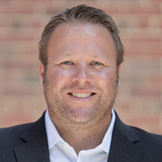 Thomas C. Murray
Thomas C. MurrayTom Murray serves as the director of innovation for Future Ready Schools, a project of All4Ed, in Washington, D.C. He has testified before the United States Congress and has worked alongside that body, the U.S. Senate, the White House, the U.S. Department of Education and state departments of education, corporations, and school districts throughout the country to implement student-centered learning while helping to lead Future Ready Schools and Digital Learning Day. Prior to moving to his role in Washington, D.C., Murray served as an elementary teacher, middle school teacher, middle school principal, elementary principal, and at the district level in Bucks County, PA. He is most passionate about creating cultures of innovation, where teachers are empowered to create the types of learning experiences today's modern learners need to thrive.
In addition to his role at Future Ready Schools, Murray works directly with school and district leaders for administrative retreats, opening convocations, and professional learning days.
Murray also is a cofounder of #edtechchat, a weekly educational technology Twitter forum, where hundreds of educators from around the world discuss topics related to the effective use of educational technology.
Future Ready Literacy: How Leaders Can Implement Schoolwide Culture Change
Release Date: Wednesday, September 7, 2022It’s no secret: School and district leaders set the tone for the culture within the organization. Although every employee is ultimately responsible for creating an environment where students want to be, school leaders must model the way. How can principals looking to implement change create an innovative, sustainable culture that consistently models future ready learning, relies upon a level of teaching and learning backed by science, and promotes a high level of literacy success for all students?
Join us as we talk with our guest, best-selling author Thomas C. Murray, a lifelong educator who is now the director of innovation for Future Ready Schools®. In his current role, Murray works with districts to create the types of learning experiences today’s modern learners need to thrive. As a previous secondary and elementary principal, he knows the importance of helping every child learn to read proficiently, and how to intervene when children don’t have the literacy skills needed by third to fifth grades. On a daily basis, he works with principals and superintendents on systems change, sustainability, and equity and resolving culture-change obstacles standing in the way of students achieving the level of literacy success that allows each one to truly be future ready.
Join us as we talk with our guest and explore:
- What it means to be future ready for a student, teacher, administrator, and school
- Leveraging the The Future Ready Framework for sustainable change
- Why buying a great literacy program or intervention is not enough. If you don’t create a culture where people can learn it, believe it, and use it well, it can’t teach itself
- How do we make sure every child has the opportunity to learn? It goes well beyond technology
- The importance of community partnerships and relationships
-
Dr. Ruth KaminskiCo-author of Acadience® ReadingLearn more about Dr. Ruth Kaminski
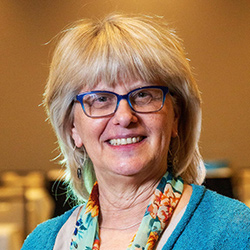 Dr. Ruth Kaminski
Dr. Ruth KaminskiDr. Ruth Kaminski, is co-author of Acadience® Reading (previously published as DIBELS Next®) and the co-founder of Acadience Learning. Dr. Kaminski is also the lead author of the early childhood literacy assessment, Acadience®Reading Pre-K: PELI®. Dr. Kaminski’s academic background includes degrees in speech pathology, early childhood special education, and school psychology. She has conducted research on assessment and preventative interventions for preschool and early elementary age children for the past 30 years. Dr. Kaminski has extensive experience consulting with Head Start agencies and public schools throughout the United States and abroad. In addition, Dr. Kaminski brings more than a decade of experience as a classroom teacher and speech/language clinician with preschool-age children.
Meaningful Assessment—And Why It Is Critical for Reading Success
Release Date: Thursday, August 4, 2022In this podcast, Dr. Ruth Kaminski, coauthor of Acadience® Learning K–6 and other respected assessments, will discuss the many aspects of assessment that make it a meaningful and essential tool for preventing reading disabilities and promoting reading success.
Join us as we talk with Dr. Kaminski about the reasons educators should rely upon assessment for curriculum alignment, progress monitoring, and classroom planning.
We’ll explore:
- The critical nature of assessment
- Who should be assessed, when, and how often?
- How assessment can help teachers align their reading instruction with the science of reading
- The various features of assessment that make it meaningful for teachers
-
Natalie WexlerEducation Writer and AuthorLearn more about Natalie Wexler
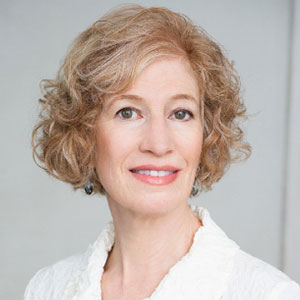 Natalie Wexler
Natalie WexlerNatalie Wexler is an education writer and the author of The Knowledge Gap: The Hidden Cause of America’s Broken Education System—And How to Fix It (Avery 2019). She is also the co-author, with Judith C. Hochman, of The Writing Revolution: A Guide to Advancing Thinking Through Writing in All Subjects and Grades (Jossey-Bass, 2017), and a senior contributor to the education channel on Forbes.com. Her newsletter, Minding the Gap, on Substack, is available for free. Click here to view past posts and subscribe.
Her articles and essays about education and other topics have appeared in The New York Times, The Washington Post, The Atlantic, The Wall Street Journal, the MIT Technology Review, The American Scholar, and other publications. She has spoken about education before a variety of groups and appeared on a number of TV and radio shows, including Morning Joe and NPR’s On Point and 1A.
She holds a Bachelor of Arts degree from Harvard University, a Master of Arts degree in history from the University of Sussex (UK), and a Juris Doctor degree from the University of Pennsylvania. She has worked as a reporter, a Supreme Court law clerk, a lawyer, and a legal historian. The author of three novels, she lives in Washington, D.C., with her husband and has two adult children.
How Explicit Writing Instruction Can Compensate for Gaps in Background Knowledge
Release Date: Tuesday, July 5, 2022Writing is potentially the most powerful lever we have for building knowledge and improving reading comprehension. It can uncover gaps in background knowledge that prevent students from accessing grade-level material. And, because writing helps new information stick, it can also boost students’ academic performance.
But writing is the most difficult thing we ask students to do. If inexperienced writers are asked to write at length, they can easily become overwhelmed as they juggle everything from spelling to word choice to organizing their thoughts. And if students are asked to write only about personal experience or topics in a separate writing curriculum, writing won’t help them acquire the knowledge they need to succeed in school.
Join this informative podcast as we talk with esteemed researcher and author Natalie Wexler. She will share ways to make writing less overwhelming by starting at the sentence level and how to include writing activities in the content of the core curriculum. This is an approach that shouldn’t be limited to English classes. It can have powerful effects in any subject—and at any grade level.
Never miss an episode!
Add your email here to sign up for EDVIEW360 blogs, webinars, and podcasts. We'll send you an email when new posts and episodes are published.
Hosts:
Pamela Foy Austin and Greg Hullett
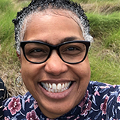
Pamela Austin is Director of Instructional Technology for Voyager Sopris Learning with more than 12 years’ experience training and supporting districts implementing Voyager Sopris Learning literacy and numeracy solutions including LETRS® (Language Essentials for Teachers of Reading and Spelling), a professional development course of study. She has more than 30 years’ experience as an educator, previously working as a literacy specialist at the Center for Development and Learning, a nonprofit educational consulting firm based in the greater New Orleans area. As an educator in the New Orleans Public School system, Austin worked as an elementary teacher, reading interventionist, and a school site reading coach, leading to a central office position as a field literacy facilitator supporting 10 to 12 schools in the district.
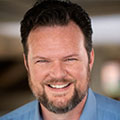
Greg Hullett is an Account Executive for Voyager Sopris Learning with more than seven years' experience in sales and supporting educators with curriculum and instructional technology. He has partnered with many districts and schools across the U.S. to provide solutions to educators’ needs for student achievement. Greg is an actor and musician in the local Dallas-Ft. Worth theater community. A few of his favorite shows include Chicago, 9 to 5, Cabaret, and Mamma Mia.











